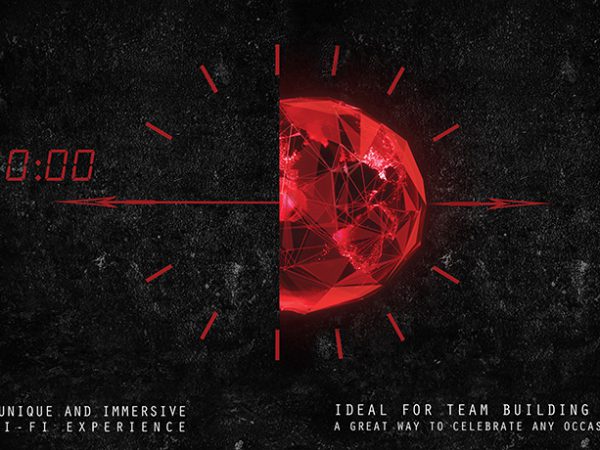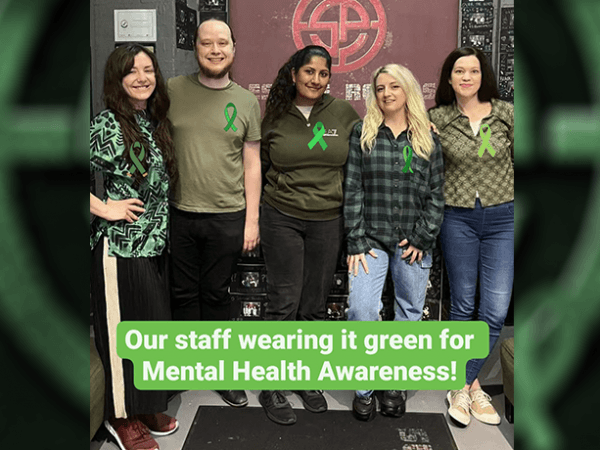Of time, Auden wrote, albeit in a very different context, that it is ‘intolerant of the brave and the innocent.’ (‘And indifferent in a week / to a beautiful physique’… Which we can well attest, but is irrelevant here.)
He was right, of course. The clock carries you forward, inexprorably, toward the end of everything; the hour, the day, the week, month, year; life, the universe — everything. As if that weren’t enough, humanity has a habit of imposing artificial ends upon itself. Tasks have deadlines, which are hard enough to meet even when unique to you. Throw a few more people into the admixture and suddenly things become much more complicated. You might, to borrow from Henley, remain ‘the captain of your soul,’ but you’re no longer the master of your fate.
This can be a good or a bad thing, depending on how you work and who you’re working with. Trust is paramount. If you don’t trust your colleagues, if you don’t know them or how to work with them, odds are the whole process will seem that much more stressful and unpleasant. Thus has ‘team-building’ become an industry of its own; deadlines do not wait for some random and accidental mixture of elements between which chemistry might or might not begin to function. Reaction must be provoked.
This might appear tangential but I assure you it is not: The ‘Scandinavian model’ of education (if indeed there truly is a single model) is almost unique in being both feted and underrated. All independent analyses suggest it is spectacularly successful, yet it is studiously ignored by those responsible for education outside the Nordic realms.
It embraces a concept called friluftsliv, which has it that the natural world – to say nothing of yourself, and your place in the same – is best understood by experience of it. It has an ancient almost-analogue in Aristotle’s phonesis, or practical wisdom. The lessons of biology are best remembered by practical experience of its teachings; physics and chemistry make more sense when you experiment with them. As I can attest from schoolboy experience, understanding how Cromwell earned his (temporary) victory in the civil war is easiest when you’re given a pike and told to march in formation against a rabble of classmates composed in the main of those you like least. (I had an unorthodox history teacher.)
We do a form of friluftsliv here at Escape Rooms. Kind of. If defined liberally. Except that, rather than encourage you to experience the great outdoors, we lock you in dark rooms full of fiendish puzzles and tell you to escape. Anti-friluftsliv, perhaps.
Time, tasks, deadlines, teammates — a human chemistry set, if you will.
Escape games have become something of a worldwide phenomenon. The simple concept allows for near-infinite permutations. Our four games include raiding an ancient Egyptian tomb, breaking into the British museum, shooting space Nazis on the moon and deprogramming our equivalent of the HAL9000 computer.
But the basics remain the same. And it is because those basics are so potent that they – that we – are so useful for team-building exercises, if that term is understood properly.
We can of course produce the ingredients from scratch. But seldom is it an exercise designed to create a team. Rather, it often serves as a means of testing and improving existing chemistry. Chances are you’ll not look to send a team of totals strangers to us, but instead a group of people who are already professionally acquainted to one degree or another. You’ll want to find out what camaraderie already exists, as well as building upon it.
I find Project D.I.V.A to be particularly useful here. There is a section of the game during which two people are separated from the rest of the group and confined to two locked compartments, where they remain until the rest of the team has solved a rather devilish puzzle with their help.
There is a wealth of research which proves that people act very differently in isolation, and differently again when the nominal group leader is absent. I’d be lying if I said it always brings out the best in people — but that’s not what you’re looking for, is it?
These are occasions to learn about people as well as to fashion them. I once had a team which included one particularly quiet individual, who played absolutely no part in the game until the two group leaders were locked away. The rest of the team foundered until this impeccably quiet man tired of their dithering and took charge, accomplishing his new role somewhat tersley but in a manner otherwise deserving of sicnere admiration.
They would not have escaped without him. And we, who watch every moment of the games we host from the security of our office, were able to observe a palpable and lasting change in the team dynamic. This was a chance for this new-comer to the group to prove himself, and he did so creditably, thus truly introducing himself to his colleagues.
This is an example of success, but it would be dishonesty by ommission if I did not say that we are as good at revealing incompatibility as we are compatibility. (At our London Bridge venue we’ve hosted a couple of proposals, and we’ve also precipitated a couple of relationships reaching their acrimonious end.)
In this pressured setting, suffering the intolerance of time, people reveal their true natures. The bossy can become the tyannical, the meek can become wrecks, the cynical can destroy the morale of everyone else.
If these are the revelations you seek, come on over. We can prove strength in adversity but ultimately what we do is reveal truth by adversity. You’ll learn far more about your employees and your colleagues in our world(s) than you can anywhere else.
By Benjamin Mercer



